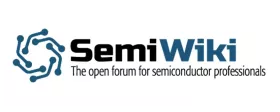Microprocessors: Will ARM Rule the World?
Last week was the Linley Microprocessor Conference. Not the mobile one, which I find the most interesting since smartphones are such a bit part of what drives process technology these days, this is the one focused on networking and servers. But increasingly both markets are being driven by the same thing, namely mobile data. In fact smartphones are growing so fast that they are already the primary way that the internet is accessed and that trend is only going to accelerate. Desktop and notebook computers are a comparative niche. Jag Bolaria (of Linley) gave the opening keynote giving an overview of this part of the industry. Reading their data is a little difficult since they have a, to me, slightly weird definition of embedded, namely processors that last for a long time. I think they really mean anything other than a standard PC, which also has the slightly weird effect of showing Intel losing market share since the more that is done with standard server chips then the more it doesn't count in the embedded market, as opposed to selling chips that go into routers, for example. Another complication is that Avago purchase LSI and then sold the Axxia part of that business to Intel. For this year, Linley continued to track LSI as a separate company.
To read the full article, click here
Related Semiconductor IP
- LPDDR6/5X/5 PHY V2 - Intel 18A-P
- ML-KEM Key Encapsulation & ML-DSA Digital Signature Engine
- MIPI SoundWire I3S Peripheral IP
- ML-DSA Digital Signature Engine
- P1619 / 802.1ae (MACSec) GCM/XTS/CBC-AES Core
Related Blogs
- Half of the Compute Shipped to Top Hyperscalers in 2025 will be Arm-based
- Will Crypto Change the World?
- The Industry’s First USB4 Device IP Certification Will Speed Innovation and Edge AI Enablement
- Embracing the Future with Cortex-A320: A Deep Dive into the General Armv9 Architecture Adoption
Latest Blogs
- Why What Where DIFI and the new version 1.3
- ML-DSA explained: Quantum-Safe digital Signatures for secure embedded Systems
- Efficiency Defines The Future Of Data Movement
- Why Standard-Cell Architecture Matters for Adaptable ASIC Designs
- ML-KEM explained: Quantum-safe Key Exchange for secure embedded Hardware
